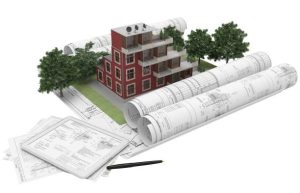
 Building your dream home starts with finding the perfect piece of land. The land parcel you choose will shape the foundation of your future home and lifestyle. From breathtaking views to practical considerations, there are several factors to keep in mind when searching for the ideal land.
Building your dream home starts with finding the perfect piece of land. The land parcel you choose will shape the foundation of your future home and lifestyle. From breathtaking views to practical considerations, there are several factors to keep in mind when searching for the ideal land.
In this guide, we provide essential tips to help you navigate the process of finding the perfect land parcel for your dream home.
Location, Location, Location:
Consider the location carefully, as it significantly impacts your daily life and property value. Evaluate factors such as proximity to amenities, schools, workplaces, and transportation options. Additionally, assess the neighborhood’s character, safety, and future development plans.
Land Size and Topography:
Determine the size and topography of the land parcel based on your home design and lifestyle preferences. Consider factors such as slope, drainage, and natural features like trees and bodies of water. Ensure the land is suitable for your desired home layout and landscaping plans.
Zoning Regulations and Building Codes:

Familiarize yourself with local zoning regulations and building codes governing land use and development. Verify whether the land is zoned for residential construction and if there are any restrictions or requirements that may impact your building plans.
Utilities and Infrastructure:
Check the availability and accessibility of essential utilities such as water, electricity, gas, and sewerage. Evaluate the cost and feasibility of connecting to existing infrastructure and utilities. Consider factors like road access, internet connectivity, and cell phone reception.
Environmental Considerations:
Assess environmental factors that may affect the land parcel, such as flood zones, wetlands, soil quality, and natural hazards like earthquakes or wildfires. Conduct environmental assessments and soil tests to ensure the land is suitable for building and landscaping.
Budget and Financing:

Determine your budget for purchasing the land parcel and factor in additional costs such as site preparation, permits, and taxes. Explore financing options and consult with lenders to understand your borrowing capacity and eligibility for land loans or mortgages.
Finding the perfect land parcel to build your dream home requires careful consideration and research. Remember, investing time and effort in finding the right land parcel lays the foundation for creating the home of your dreams.











 Are you navigating the complexities of land ownership, acquisition, or development? Do you have burning questions about land use, zoning regulations, or investment strategies? Look no further! Our exclusive Q&A session with industry experts is here to address all your land-related queries.
Are you navigating the complexities of land ownership, acquisition, or development? Do you have burning questions about land use, zoning regulations, or investment strategies? Look no further! Our exclusive Q&A session with industry experts is here to address all your land-related queries.

 Securing financing for a land purchase is a pivotal step in realizing property ownership dreams. Whether it’s for building a home, starting a business, or investing in real estate, understanding the diverse options and critical considerations is paramount.
Securing financing for a land purchase is a pivotal step in realizing property ownership dreams. Whether it’s for building a home, starting a business, or investing in real estate, understanding the diverse options and critical considerations is paramount.



